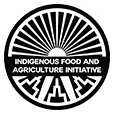Search Results
Displaying results for 'Northwest Region':
Website: americanindian.si.edu/nk360/pnw-history-culture/muckleshoot.cshtml
Point of Contact: Valerie Segrest
E-mail Address: vsegrest@gmail.com
Muckleshoot Food Sovereignty Project
Directory Listing
Warning: Undefined array key "School-based program" in /var/www/wp-content/plugins/community-asset-directory/community-asset-directory.php on line 868
Warning: Undefined array key "Education program" in /var/www/wp-content/plugins/community-asset-directory/community-asset-directory.php on line 868
Website: americanindian.si.edu/nk360/pnw-history-culture/muckleshoot.cshtml
Point of Contact: Valerie Segrest
E-mail Address: vsegrest@gmail.com
Muckleshoot Tribal School
Directory Listing
Warning: Undefined array key "Improves healthcare outcomes for community members" in /var/www/wp-content/plugins/community-asset-directory/community-asset-directory.php on line 868
NW Tribal Food Sovereignty Coalition (WEAVE-NW)
Directory Listing
Website: sakarifarms.weebly.com
Website: www.facebook.com/pages/category/Agricultural-Service/Sakari-Farms-224485035156593
Point of Contact: Spring Olson
E-mail Address: sakarifarms@gmail.com
Phone Number: 541-647-9604
Sakari Farms
Directory Listing
Website: www.critfc.org
Point of Contact: Buck Jones
E-mail Address: buck@critfc.org
Phone Number: 503-731-1319
Salmon Marketing Program - Columbia River Intertribal Fish Commission
Directory Listing
Website: www.swinomish.org/resources/health-wellness/community-environmental-health.aspx
Point of Contact: Jamie Donatuto
E-mail Address: jdonatuto@swinomish.nsn.us
Phone Number: 360-466-1532
Swinomish Community Environmental Health Program
Directory Listing
Urban Indian Health Institute
Directory Listing






